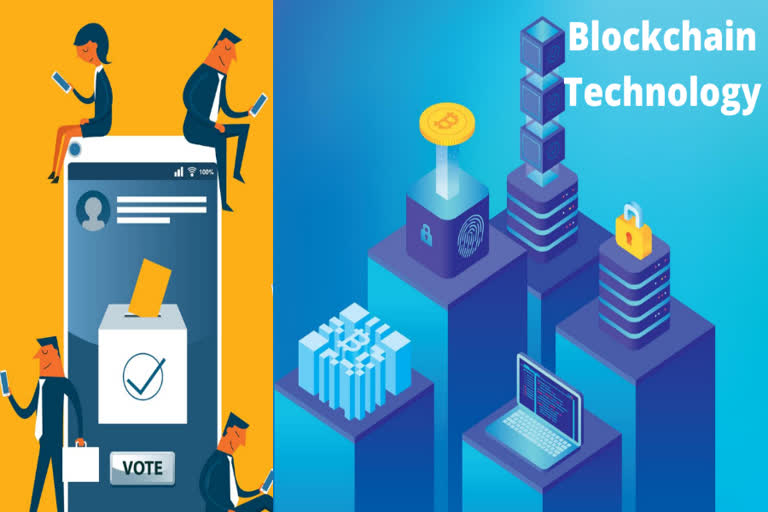Delhi: The Internet today has great advantages of collaboration and communication, however, concerns of privacy have been intensely flawed. Blockchain technology allows peer-to-peer transactions by eliminating the need for any intermediary or any governing body. By keeping the information of users as anonymous, it validates and retains a permanent public record of all the transactions. Information via Blockchain is highly secure and private, while all the activities involved are incorruptible and transparent.
Generally, we spending hours in voting, each and every individual takes a day off from his daily routine the whole city comes to a halt as people form a queue outside the voting booth waiting for their turn to vote. For various reasons, people do not turn up to vote. We also keep hearing news about fake voting, booth capturing, etc.
Also Read: Coronavirus Pandemic replacing Finger Biometrics with Voice and Facial Biometrics
As India is growing to be Digital India, maybe in the future we can implement blockchain for voting as it can solve many of the problems that we face in our voting system. People won’t need to go to polling booths as they could vote through their phones with their digital authentication techniques such as facial recognition or voice biometrics, thus saving time and authenticating each vote as each individual will be able to vote once through their digital signature. Hence not revealing their identity to anyone.
- Blockchain is paving the way for a direct democracy, where people can decide the course of policy themselves, rather than rely on representatives to do it for them. Fairness and transparency in the election process is the paramount need.
- Blockchain holds to offer cost-effective and smart solutions to the existing issues of the current voting process.
- Blockchain preserves voters’ confidentiality and privacy of votes while being open to public scrutiny.
- It is capable of maintaining accountability, auditability, and authentication of votes with more transparency and convenience by streamlining counting and minimizing costs involved.
Although nothing is free of faults and secure these days, yet blockchain-enabled voting process holds to make tampering, manipulation and altering almost impossible that will also help in possessing general public faith in the governance and thus will result in increased public participation and turnout.
The present process of voting consists of two steps; first is to register for the vote and the next is the process of voting itself. The system of e-voting presented through the blockchain will have an extra step in it; that will enable the users to verify their votes and to get an affirmation of their votes.
Col. Inderjeet explains," Blockchain technology in voting has the potential to address all the concerns, shortfalls, and barriers of the present system. Blockchain in voting stands to solve society’s ultimate challenge of trust that will also eliminate the need for any middleman in between."
• Setup - Election authority uploads all information about the election. Length of voting and registration periods, threshold key for voters to encrypt their votes, and the voting options.
